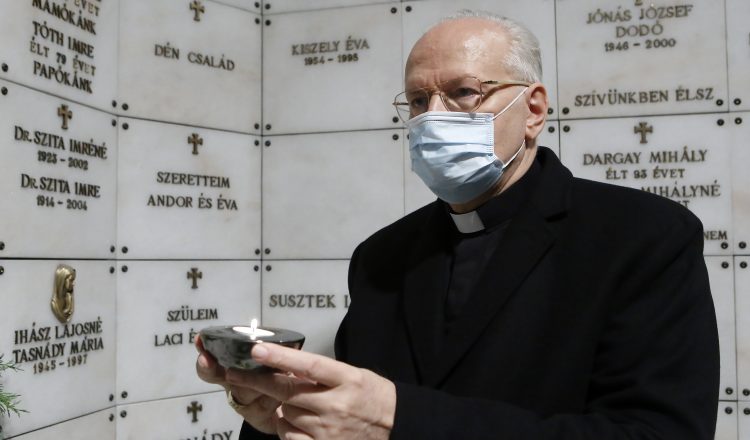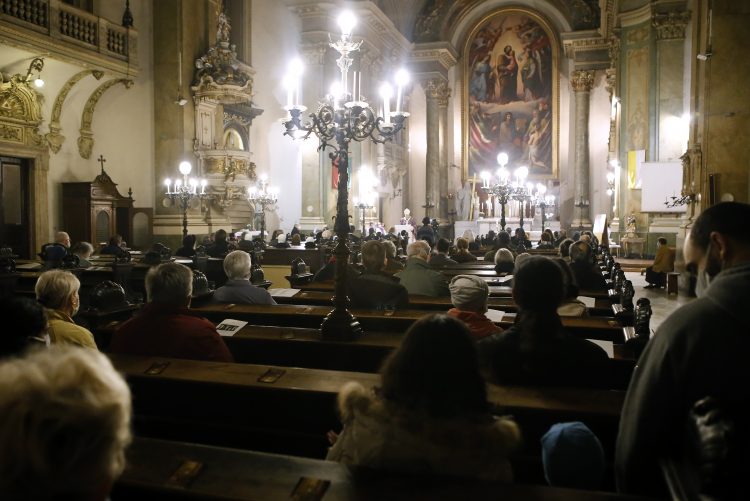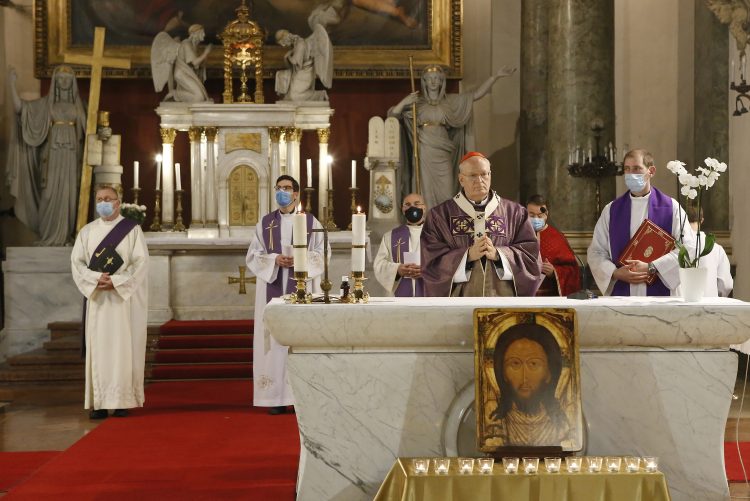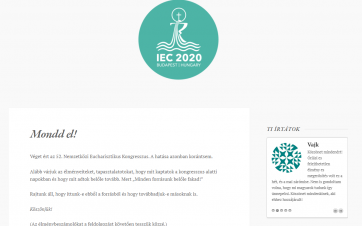
Lived faith and vocation

The Cardinal’s homily is published in full:
Dear Brothers and Sisters in Christ!
1.
This year on the night of All Saints’ Day we offer the Holy Mass for the COVID victims of Hungary. We also pray for our sick brothers and sisters, their relatives and all those who, in the wake of the pandemic are carrying extraordinary burdens. This autumn, the second wave of the pandemic has brought great physical, financial and spiritual ordeals upon many. At the same time, this period also gives us the opportunity to recall the lives of some of our former archbishops, from the perspective of lived faith and vocation.
2.
Charles Ambrose Habsburg-Lorraine, Maria Theresa’s grandson, and the nephew of the Hungarian King, Emperor Francis I died two hundred and eleven years ago. He was born in 1785 in Milan, and was named after the two most famous saintly bishops of the city, namely Saint Ambrose and Saint Charles Borromeo. He was ordained a priest in 1807, at the age of 22 and appointed to Archbishop of Esztergom on March 16, 1808 by Pope Pius VII. Given his young age, the Pope had relieved him of fulfilling the age requirement for accepting the episcopal sacrament of the church order. He had just taken over his diocese when the Napoleonic War reached Hungary, thus, the young Primate received the mandate to participate in the organization of a county battalion strong enough to resist the French army. On June 14, 1809, the Hungarians were defeated in the battle of Győr. The Primate set up a military hospital to care for the wounded soldiers. He not only organized and managed the hospital, but visited the sick, providing spiritual consolation. This was when he fell ill with typhus, of which he died on September 2, 1809 at the age of 23.

3.
Looking back at his short life we may have the impression that he was given preferential treatment due to his royal lineage, and perhaps even a political career had been planned for him. Yet providence decided otherwise. He himself played a great part in the turn of his fate. If he had kept a royal distance from those in need, the invalid, the ill, he could have lived a long life. Instead, he decided to follow Christ’s teachings. For as Jesus teaches us, on Judgment Day, it is not our ancestry of which we will be questioned, or the high positions we had filled, but we will hear our Eternal Judge say: “I was ill and you visited me” (Mt 25,36). This is why many of our forefathers were convinced that if they visit those with faith, love, and personal sacrifice, who had fallen ill from a disease, and then died of having been infected by the same disease, such persons should in fact be considered martyrs, since they had offered their lives in Christian love.
However, canonization for martyrdom also requires that the martyrdom include a persecutor or a tyrant, or their follower who caused the martyr’s death. Thus, the Catholics killed in the Nice church last week, may truly be considered martyrs, since they were killed purposely, out of hate on account of their faith. Meanwhile, of those who had died of the disease while exercising the Christian virtue neighbourly love, Pope Benedict XIV says that they can be considered martyrs in a broader sense, but are not martyrs in the literal sense according to Church practice. Such death did not occur as a consequence of a persecutor’s action taken in free will, but rather as a result of contagion.Still, no matter how we interpret the testimony of the Archbishop of Esztergom, who had passed away at such a young age, it is definitely true that during his short life and in death he behaved in an exemplary way, setting an example for Christian charity and the actions of mercy. In the teachings of Christ, these will all be accounted for when the Lord measures our life.
4.
Medicine has come a long way in the past 200 years, we know a great deal about the nature of infections. The example of Charles Ambrose Habsburg-Lorraine does mean that we should neglect to follow necessary precautions, instead, it focuses our attention on what is truly essential. We should make the best of the opportunities we have today to do our utmost for those in need of our help. We should lend a helping hand our loved ones who are facing financial problems at this time. We should try and lighten the load of those, who are suffering under the sudden burden of heavier workload. Following precautions is important for everybody and an act of mercy, so as not to put other people’s health in danger. Just think: the illness of a single person can ruin the life of an entire family.
5.
There are two acts of mercy we that are of particular importance today. One is to bury our dead. This has never been solely about maintaining public health, but also to pay respect to man created in God’s image. As Christians we believe the body of the baptised is the church of God. This is why we say goodbye to our loved ones in a church ceremony. And this is also the reason why we visit their graves.
But to pray for both the living and the dead is also an act of mercy. Praying for the dead is a tradition that goes back to the beginnings of early Christian communities. We believe that if one is in the state of grace at the time of death, but still imperfectly purified, they will be greatly helped through our prayers in reaching salvation. The greatest and most effective way of praying is taking the Eucharist. It is with this act that we manifest Christ’s sacrifice. It is he who has redeemed us. Through his sacrifice, and our connection to him, we have a free path to eternal happiness. This why we dedicate this Holy Mass to our dead.
Grant, O Lord, eternal rest unto them, and let perpetual light shine unto them! Amen!

Source: IEC
Photo: Marcsi Ambrus










